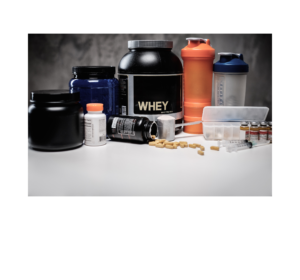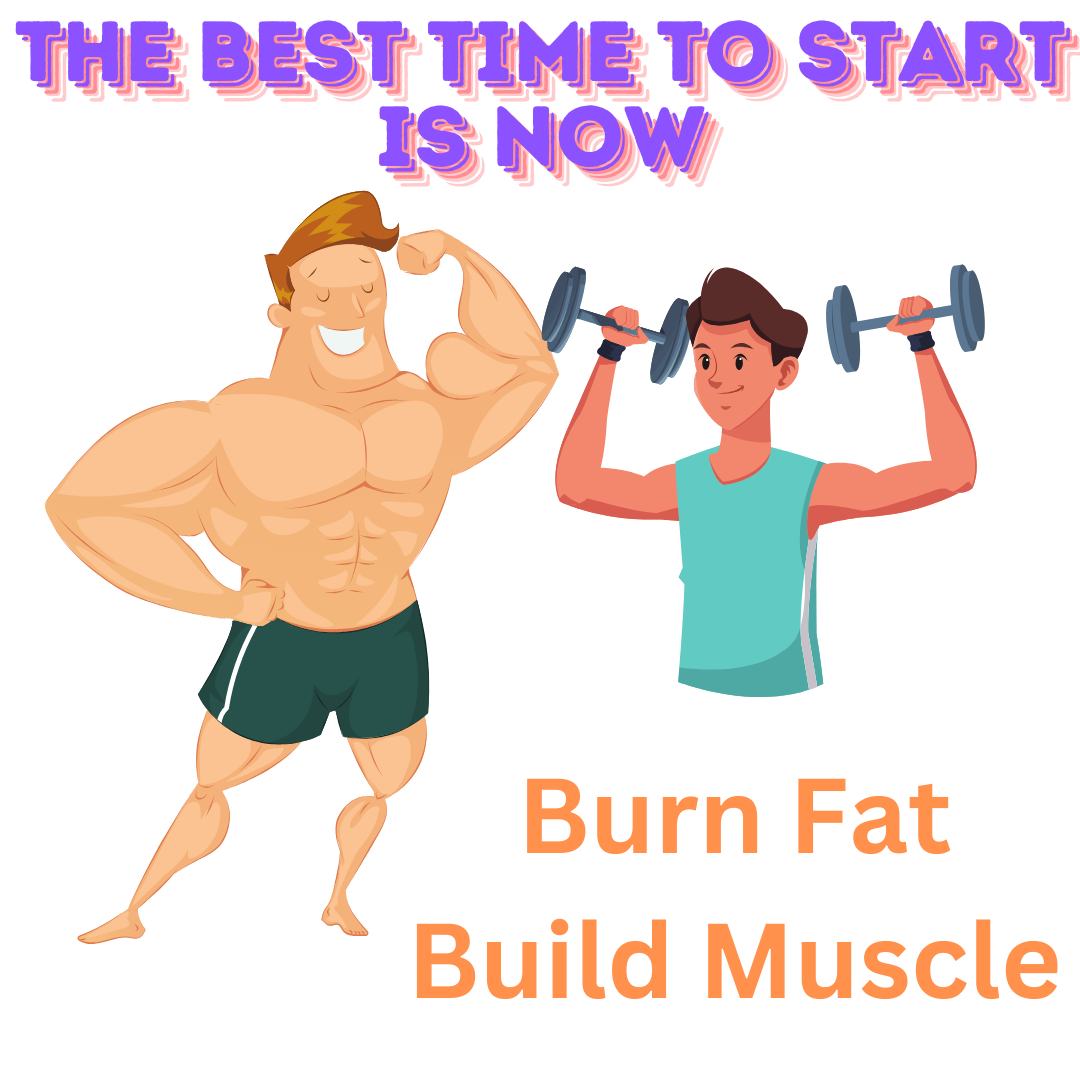introduction:
Burn Fat, Build Muscle: Unlocking the Potential of Supplements
In pursuing a leaner, stronger physique, many individuals turn to supplements to aid in their fat loss and muscle-building goals. These supplements, often marketed as fat burners or muscle builders, claim to enhance metabolism, increase energy levels, and improve overall body composition.
Let’s delve into fat-burning and muscle-building supplements, exploring how they work and whether they’re worth incorporating into your fitness regimen. burn fat ,burn fat burn fat
Understanding Fat Loss and Muscle Building:

Before delving into the realm of supplements aimed at fat loss and muscle building, it’s important to grasp the fundamental concepts behind these processes. Fat loss refers to the reduction of body fat stores, typically achieved through a combination of calorie restriction and increased physical activity. On the other hand, muscle building involves stimulating muscle growth through resistance training and providing the body with the necessary nutrients for muscle repair and growth.
Both burn fat and muscle building are influenced by various factors, including diet, exercise, genetics, and hormones. While fat loss requires a caloric deficit (burning more calories than consumed), muscle building necessitates adequate protein intake, resistance training, and sufficient rest for muscle recovery and growth.
Achieving a balance between burn fat and muscle building is crucial for obtaining a lean, toned physique. By incorporating proper nutrition, targeted exercise routines, and restorative practices into your lifestyle, you can optimize your body composition and achieve your fitness goals effectively.
To continue, let’s delve deeper into the key principles of fat loss and muscle building:
Fat Loss:
- Fat loss occurs when the body is in a calorie deficit, meaning it burns more calories than it consumes. This deficit can be achieved through a combination of dietary changes and increased physical activity.
- While cardio exercises like running, cycling, or swimming can help burn calories and promote fat loss, strength training is also essential. Strength training builds lean muscle mass, which can boost metabolism and contribute to burn fat over time.
- Nutrition plays a crucial role in fat loss. A diet rich in whole foods, lean proteins, healthy fats, and fiber, while limiting processed foods and sugary beverages, can support fat-loss efforts by providing essential nutrients and keeping you feeling satisfied.
Muscle Building:
- Muscle building, also known as muscle hypertrophy, occurs when the muscles are subjected to progressive overload through resistance training. This stimulus triggers muscle fibers to repair and grow stronger over time.
- Resistance training exercises such as weightlifting, bodyweight exercises, and resistance band workouts are effective for stimulating muscle growth.
- It’s important to vary your exercises and progressively increase the intensity to continue challenging your muscles.
- Adequate protein intake is essential for muscle building, as protein provides the building blocks (amino acids) necessary for muscle repair and growth. Aim to consume protein-rich foods like lean meats, fish, eggs, dairy, legumes, and tofu at each meal.
By combining targeted exercise routines with a balanced diet that supports both fat loss and muscle building, you can achieve a leaner, stronger physique. It’s essential to prioritize consistency, patience, and proper recovery to see long-term results. Remember that progress takes time, and focusing on sustainable lifestyle changes will yield the best outcomes for your health and fitness journey.
Ingredients in Muscle-Building Supplements
 Muscle-building supplements are designed to enhance muscle growth, strength, and recovery by providing the body with key nutrients and compounds that support these processes. Here’s how some of the common muscle-building supplements work:
Muscle-building supplements are designed to enhance muscle growth, strength, and recovery by providing the body with key nutrients and compounds that support these processes. Here’s how some of the common muscle-building supplements work:
Protein Powders:
- Protein powders, such as whey, casein, and plant-based protein powders, are popular supplements for promoting muscle growth and repair. They provide a convenient source of high-quality protein, which is essential for muscle protein synthesis – the process by which muscles repair and grow after exercise.
- Whey protein, in particular, is quickly absorbed by the body, making it an ideal choice for post-workout recovery. Casein protein, on the other hand, is digested more slowly, providing a sustained release of amino acids to support muscle repair and growth over time.
Creatine:
- Creatine is a naturally occurring compound found in muscle cells, where it plays a crucial role in energy production during short bursts of high-intensity exercise, such as weightlifting or sprinting.
- Supplementing with creatine can increase the body’s stores of creatine phosphate, which is used to replenish ATP (adenosine triphosphate), the primary source of energy for muscle contractions.
- By increasing ATP availability, creatine supplementation may enhance muscle strength, power output, and exercise performance, allowing for more intense and productive workouts.
Branched-Chain Amino Acids (BCAAs):
- BCAAs, including leucine, isoleucine, and valine, are essential amino acids that play a key role in muscle protein synthesis and recovery.
- Supplementing with BCAAs before, during, or after exercise can help reduce muscle breakdown, promote muscle protein synthesis, and decrease muscle soreness and fatigue.
- BCAAs are particularly beneficial for individuals engaging in prolonged or intense exercise, as they can support muscle recovery and enhance endurance.
Beta-Alanine:
- Beta-alanine is a non-essential amino acid that combines with histidine to form carnosine, a dipeptide found in muscle cells.
- Supplementing with beta-alanine can increase muscle carnosine levels, which act as a buffer against the buildup of lactic acid during exercise.
- By reducing muscle acidity and delaying the onset of fatigue, beta-alanine supplementation may improve exercise performance, allowing for longer and more productive workouts.
These muscle-building supplements work synergistically to support muscle growth, strength, and recovery. When combined with a balanced diet, proper hydration, and regular exercise, they can help individuals achieve their muscle-building goals more effectively and efficiently. However, it’s essential to use supplements as part of a comprehensive approach to fitness and consult with a healthcare professional or registered dietitian before starting any new supplement regimen.
HMB (Beta-Hydroxy Beta-Methylbutyrate):
- HMB is a metabolite of the essential amino acid leucine and has been shown to have potential benefits for muscle growth and recovery.
- Supplementing with HMB may help reduce muscle protein breakdown, enhance muscle protein synthesis, and promote muscle mass retention, particularly during periods of calorie restriction or intense training.
- HMB supplementation is often used by athletes, bodybuilders, and individuals undergoing resistance training to support muscle recovery and improve performance.
Growth Hormone Boosters:
- Growth hormone (GH) is a hormone produced by the pituitary gland that plays a role in muscle growth, fat metabolism, and overall body composition.
- Some supplements claim to boost GH levels through ingredients like arginine, ornithine, and GABA (gamma-aminobutyric acid), which are thought to stimulate GH release from the pituitary gland.
- While these supplements may have potential benefits for muscle growth and recovery, research on their effectiveness is limited, and more studies are needed to determine their long-term safety and efficacy.
Nitric Oxide Boosters:
- Nitric oxide (NO) is a molecule that plays a role in regulating blood flow, oxygen delivery, and nutrient uptake to muscles during exercise.
- Supplements containing ingredients like L-arginine, L-citrulline, and nitrate precursors are marketed as nitric oxide boosters, purported to enhance blood flow, muscle pump, and exercise performance.
- While some individuals may experience temporary improvements in workout performance and muscle pump with nitric oxide supplements, the overall evidence for their efficacy is mixed, and more research is needed to confirm their benefits.
Testosterone Boosters:
- Testosterone is a hormone that plays a crucial role in muscle growth, strength, and recovery. Testosterone boosters are supplements that claim to increase testosterone levels naturally.
- Ingredients commonly found in testosterone boosters include Tribulus Terrestre, D-aspartic acid, fenugreek extract, and zinc, which are believed to support testosterone production or enhance its bioavailability.
- While some studies suggest that certain ingredients in testosterone boosters may have modest effects on testosterone levels, the overall evidence for their effectiveness is inconclusive, and their long-term safety is uncertain.
While muscle-building supplements can offer potential benefits for enhancing muscle growth, strength, and recovery, it’s essential to approach them with caution and skepticism. Not all supplements are backed by robust scientific evidence, and some may have potential side effects or interactions with medications.
Additionally, supplements should be used as part of a comprehensive approach to fitness, including proper nutrition, regular exercise, and adequate rest and recovery. Consulting with a healthcare professional or registered dietitian before starting any new supplement regimen is recommended to ensure safety and efficacy.
Common Ingredients in Fat Burners:
 common ingredients found in fat burners can vary depending on the specific product, but some frequently used ones include:
common ingredients found in fat burners can vary depending on the specific product, but some frequently used ones include:
-
Caffeine: Often used as a stimulant to increase energy expenditure and enhance metabolism, helps to burn fat.
-
Green Tea Extract: Contains compounds like catechins and caffeine, which may help with fat-burn oxidation and thermogenesis.
-
L-Carnitine: An amino acid that plays a role in fat metabolism, potentially aiding in the transportation of fatty acids into cells to be burned for energy.
-
Capsaicin: Found in chili peppers, capsaicin may increase metabolism and help with fat oxidation.
-
Garcinia Cambogia: Contains hydroxy citric acid (HCA), which is believed to inhibit fat storage and suppress appetite.
-
Yohimbine: Derived from the bark of the Yohimbe tree, yohimbine may aid in fat loss by increasing adrenaline levels and promoting the breakdown of fat stores.
-
Synephrine: Found in bitter orange extract, synephrine is believed to enhance metabolism and promote fat loss.
-
Conjugated Linoleic Acid (CLA): A type of fatty acid found in meat and dairy products, CLA may help reduce body fat while preserving lean muscle mass.
-
Fucoxanthin: A pigment found in brown seaweed, fucoxanthin may increase metabolism and promote fat burning.
-
5-HTP: A precursor to serotonin, 5-HTP may help regulate appetite and reduce calorie intake.
It’s important to note that while these ingredients are commonly found in fat burners, their effectiveness and safety can vary. Always consult with a healthcare professional before starting any new supplement regimen, especially if you have underlying health conditions or are taking medication.
How Fat Burners Work:

Fat burners are dietary supplements designed to aid in weight loss by increasing metabolism, enhancing fat oxidation, and suppressing appetite. Here’s how they typically work:
Boosting Metabolism:
- Many fat burners contain ingredients like caffeine, green tea extract, and thermogenic compounds that stimulate the central nervous system and increase the metabolic rate, help in burn fat.
- By revving up the body’s metabolism, fat burners help the body burn more calories at rest and during physical activity, leading to increased energy expenditure and potential weight loss.
Enhancing Fat Oxidation:
- Fat burners often contain ingredients that promote fat oxidation, the process by which stored fat is broken down and used for energy.
- Compounds like green tea extract, L-carnitine, and capsaicin have been shown to increase the body’s ability to use fat as fuel, potentially leading to greater fat loss over time.
Suppressing Appetite:
- Some fat burners include ingredients like fiber, glucomannan, or 5-HTP (5-hydroxytryptophan) that can help suppress appetite and reduce food cravings.
- By promoting feelings of fullness and satiety, these ingredients may help individuals consume fewer calories throughout the day, leading to a calorie deficit and weight loss.
Increasing Energy Levels:
- Fat burners often contain stimulants like caffeine or green tea extract that can increase energy levels and improve focus and alertness, burning fat.
- Higher energy levels can lead to increased physical activity and calorie expenditure, further supporting weight loss efforts.
Regulating Hormones:
- Some fat burners claim to regulate hormones involved in metabolism and appetite control, such as leptin, ghrelin, and insulin.
- By optimizing hormone levels, these supplements aim to create a more conducive environment for fat loss and weight management.
It’s important to note that while fat burners can be effective for some individuals, they are not a magic solution for weight loss. Results may vary depending on factors such as diet, exercise, genetics, and individual response to ingredients.
Additionally, fat burners are most effective when used as part of a comprehensive weight loss program that includes a balanced diet, regular exercise, adequate sleep, and stress management. As with any supplement, it’s crucial to consult with a healthcare professional before starting a fat burner regimen, especially if you have underlying health conditions or concerns
Full Diet Plan for Fat Loss

Meal 1: Breakfast
- Option 1: Protein smoothie made with whey protein powder, spinach, berries, and almond milk.
- Option 2: Greek yogurt topped with sliced almonds, berries, and a drizzle of honey.
- Supplement: Omega-3 fish oil capsules to support overall health and reduce inflammation.
Meal 2: Mid-Morning Snack
- Option 1: Hard-boiled eggs with carrot sticks and hummus.
- Option 2: Apple slices with almond butter.
- Supplement: Green tea extract to boost metabolism and promote fat oxidation.
Meal 3: Lunch
- Option 1: Grilled chicken salad with mixed greens, cherry tomatoes, cucumbers, avocado, and balsamic vinaigrette.
- Option 2: Quinoa salad with black beans, grilled vegetables, feta cheese, and a squeeze of lemon.
- Supplement: Branched-chain amino acids (BCAAs) to support muscle preservation and recovery during calorie restriction.
Meal 4: Afternoon Snack
- Option 1: Cottage cheese with sliced peaches and a sprinkle of cinnamon.
- Option 2: Rice cakes topped with mashed avocado and cherry tomatoes.
- Supplement: Green coffee bean extract to help regulate blood sugar levels and reduce cravings.
Meal 5: Dinner
- Option 1: Baked salmon with steamed broccoli and quinoa.
- Option 2: Turkey chili with mixed vegetables and a side salad.
- Supplement: Casein protein powder before bed to support muscle repair and prevent muscle breakdown overnight.
Additional Tips:
- Drink plenty of water throughout the day to stay hydrated and support fat loss.
- Incorporate high-intensity interval training (HIIT) or resistance training workouts 3-4 times per week to maximize fat burning and preserve lean muscle mass.
- Prioritize sleep and aim for 7-8 hours of quality sleep per night to optimize hormone levels and recovery.
- Limit processed foods, sugary beverages, and excess alcohol, as they can hinder fat loss efforts and contribute to inflammation.
- Consult with a healthcare professional or registered dietitian before starting any new supplement regimen to ensure safety and efficacy.
By following this diet plan and incorporating the recommended supplements, you can support your fat loss goals and improve overall health and well-being. Remember that consistency, patience, and dedication are key to long-term success.
Full Diet for Build Muscle
A well-rounded diet is crucial for building muscle effectively. Here’s a brea kdown of the best diet for muscle building:
kdown of the best diet for muscle building:
High-Protein Foods:
- Protein is the building block of muscle tissue, so it’s essential to consume an adequate amount of protein-rich foods.
- Opt for lean sources of protein such as chicken breast, turkey, fish, eggs, Greek yogurt, cottage cheese, tofu, and legumes.
- Aim to include protein in every meal and snack to support muscle repair and growth.
Complex Carbohydrates:
- Carbohydrates provide the body with energy for workouts and replenish glycogen stores in muscles.
- Choose complex carbohydrates such as whole grains, brown rice, quinoa, oats, sweet potatoes, and fruits.
- Incorporate carbohydrates into your meals, especially before and after workouts, to fuel exercise performance and promote muscle recovery.
Healthy Fats:
- Healthy fats are essential for hormone production, cell membrane integrity, and overall health.
- Include sources of healthy fats such as avocados, nuts, seeds, olive oil, fatty fish (salmon, mackerel, sardines), and coconut oil in your diet.
- Be mindful of portion sizes, as fats are calorie-dense, but don’t shy away from including them in your meals for optimal muscle building.
Vegetables and Fruits:
- Vegetables and fruits are rich in vitamins, minerals, antioxidants, and fiber, which support overall health and muscle function.
- Incorporate a variety of colorful vegetables and fruits into your meals and snacks to ensure you’re getting a wide range of nutrients.
- Aim to fill half of your plate with vegetables at each meal to boost nutrient intake and support digestion.
Hydration:
- Proper hydration is essential for muscle function, exercise performance, and overall health.
- Drink plenty of water throughout the day, aiming for at least 8-10 glasses per day, and more if you’re active or exercising intensely.
- Consider consuming water-rich foods such as cucumbers, watermelon, and celery to stay hydrated and support muscle hydration.
Pre- and Post-Workout Nutrition:
- Fuel your workouts with a balanced meal or snack containing carbohydrates and protein about 1-2 hours before exercise.
- After workouts, consume a post-workout meal or snack rich in protein and carbohydrates to replenish glycogen stores and support muscle recovery.
- Options include a protein shake with fruit, a turkey sandwich on whole grain bread, or Greek yogurt with berries and granola.
Consistent Eating Schedule:
- Stick to a consistent eating schedule, eating every 3-4 hours to ensure a steady supply of nutrients for muscle growth and repair.
- Avoid skipping meals or going long periods without eating, as this can hinder muscle-building efforts and lead to loss of muscle mass.
By following a diet rich in protein, complex carbohydrates, healthy fats, and micronutrients from vegetables and fruits, while staying hydrated and fueling your workouts properly, you can optimize muscle building and achieve your fitness goals effectively. Remember to listen to your body’s hunger and fullness cues, and adjust your diet as needed to support your training regimen and lifestyle.
Side Effects

While many supplements can offer potential benefits for health and fitness, it’s important to be aware of potential side effects. Here are some common side effects associated with certain supplements:
Digestive Issues:
- Some supplements, especially those containing high doses of certain nutrients or herbal extracts, may cause digestive discomfort such as bloating, gas, diarrhea, or constipation.
- Examples include iron supplements, magnesium supplements, and herbal supplements like green tea extract or forskolin.
Allergic Reactions:
- Individuals may experience allergic reactions to certain supplements, particularly those derived from common allergens like soy, dairy, wheat, or shellfish.
- Symptoms of allergic reactions can include hives, itching, swelling, difficulty breathing, or anaphylaxis.
Interactions with Medications:
- Certain supplements may interact with medications, either enhancing or inhibiting their effects, which can lead to adverse reactions or complications.
- For example, supplements like St. John’s wort, ginkgo biloba, or garlic can interact with blood-thinning medications, while supplements like potassium or magnesium can interact with certain medications for heart disease or high blood pressure.
Electrolyte Imbalances:
- Some supplements, particularly those containing minerals like potassium, magnesium, or sodium, can disrupt electrolyte balance in the body when taken in excessive amounts.
- Electrolyte imbalances can lead to symptoms such as muscle cramps, irregular heartbeat, weakness, or fatigue.
Liver or Kidney Damage:
- High doses of certain supplements, especially fat-soluble vitamins (A, D, E, K), herbal extracts, or performance-enhancing substances, may potentially cause liver or kidney damage over time.
- Examples include high-dose vitamin A supplements, excessive creatine supplementation, or anabolic steroids.
Heart Palpitations or High Blood Pressure:
- Stimulant-based supplements containing ingredients like caffeine, synephrine, or yohimbine can increase heart rate and blood pressure in sensitive individuals, leading to palpitations, anxiety, or hypertension.
- These supplements should be used with caution, especially by individuals with cardiovascular conditions or hypertension.
Insomnia or Sleep Disturbances:
- Stimulant-based supplements or those containing ingredients like caffeine can disrupt sleep patterns and lead to insomnia or sleep disturbances, particularly if taken too close to bedtime.
- It’s important to monitor caffeine intake and avoid consuming stimulant-based supplements in the evening or before bedtime to ensure restful sleep.
It’s essential to use supplements responsibly, follow recommended dosages and guidelines, and consult with a healthcare professional before starting any new supplement regimen, especially if you have underlying health conditions or concerns. Additionally, be vigilant for any adverse reactions or side effects and discontinue use if you experience any unusual symptoms.
Use and dosage

When it comes to using supplements safely and effectively, it’s important to follow a few guidelines:
Read and Follow the Instructions:
- Always read the label and follow the recommended dosage instructions provided by the manufacturer.
- Pay attention to any specific instructions regarding timing (e.g., before meals, with meals, or after workouts) and frequency of use (e.g., once daily, twice daily).
Start with a Low Dose:
- It’s generally recommended to start with a lower dose of a new supplement to assess your tolerance and response.
- Gradually increase the dosage if needed, but avoid exceeding the recommended maximum dosage unless advised by a healthcare professional.
Stay Within Recommended Limits:
- Avoid exceeding the recommended daily dosage or maximum dose unless directed by a healthcare professional.
- Consuming excessive amounts of certain supplements can increase the risk of side effects or toxicity.
Monitor Your Response:
- Pay attention to how your body responds to the supplement, including any changes in energy levels, mood, digestion, or sleep patterns.
- If you experience any adverse reactions or side effects, discontinue use and consult with a healthcare professional.
Consider Timing and Stacking:
- Some supplements may be more effective when taken at specific times of the day or in combination with other supplements.
- Consider the timing of your workouts, meals, and other supplements when planning your supplement regimen.
Stay Hydrated:
- Drink plenty of water throughout the day, especially when taking supplements like creatine or caffeine that may increase fluid needs.
- Proper hydration is essential for overall health and helps support the absorption and metabolism of supplements.
Cycle Off Periodically:
- For some supplements, it may be beneficial to cycle on and off periodically to prevent tolerance or dependence.
- Consult with a healthcare professional or follow specific guidelines for cycling recommended by the manufacturer.
Consult with a Healthcare Professional:
- Before starting any new supplement regimen, especially if you have underlying health conditions, allergies, or concerns, consult with a healthcare professional.
- A healthcare professional can provide personalized guidance based on your individual health status and goals.
By following these guidelines and using supplements responsibly, you can maximize their potential benefits while minimizing the risk of adverse effects or complications. Remember that supplements are meant to complement a healthy diet and lifestyle, not replace them, so prioritize proper nutrition, regular exercise, and overall wellness for optimal health and fitness.
Q: Can I burn fat and build muscle at the same time?
- A: Yes, it’s possible to burn fat and build muscle simultaneously, especially for beginners or individuals returning to exercise after a break. This is often achieved through a combination of strength training, cardiovascular exercise, and a balanced diet.
Q: What is the best workout routine for burning fat and building muscle?
- A: The best workout routine will vary depending on individual goals, preferences, and fitness level. However, a combination of resistance training (such as weightlifting or bodyweight exercises) and cardiovascular exercise (such as running or cycling) is typically recommended for achieving both fat loss and muscle gain.
Q: Do I need to follow a special diet to burn fat and build muscle?
- A: While there is no one-size-fits-all diet for everyone, a balanced diet rich in lean protein, complex carbohydrates, healthy fats, and plenty of fruits and vegetables can support fat loss and muscle building. It’s essential to prioritize nutrient-dense foods and monitor calorie intake to achieve your goals.
Q: Are supplements necessary for burning fat and building muscle?
- A: While supplements can complement a healthy diet and exercise routine, they are not necessary for fat loss and muscle building. Whole foods should always be the primary source of nutrients. However, certain supplements may offer benefits such as protein powders for muscle recovery or caffeine for energy during workouts.
Q: How long does it take to see results from fat loss and muscle building efforts?
- A: Results will vary depending on individual factors such as genetics, diet, exercise regimen, and consistency. Generally, noticeable changes may occur within a few weeks to a few months of consistent effort. It’s important to be patient and stay committed to your goals for long-term success.
Q: Can I target specific areas for fat loss or muscle gain?
- A: While it’s not possible to spot-reduce fat in specific areas of the body, targeted exercises can help build muscle in specific muscle groups. However, overall fat loss and muscle gain will occur throughout the body with a comprehensive exercise and nutrition plan.
Q: How often should I exercise to burn fat and build muscle?
- A: Aim for at least 150 minutes of moderate-intensity aerobic exercise or 75 minutes of vigorous-intensity aerobic exercise per week, along with two or more days of strength training per week. Consistency is key, so find a workout schedule that fits your lifestyle and stick to it.
Q: Is it possible to build muscle without lifting weights?
- A: Yes, it’s possible to build muscle without traditional weightlifting. Bodyweight exercises, resistance bands, and other forms of resistance training can effectively stimulate muscle growth. The key is to progressively overload the muscles with resistance over time.
These FAQs provide answers to common questions about burning fat and building muscle. For personalized guidance and recommendations, consider consulting with a fitness professional or registered dietitian.

